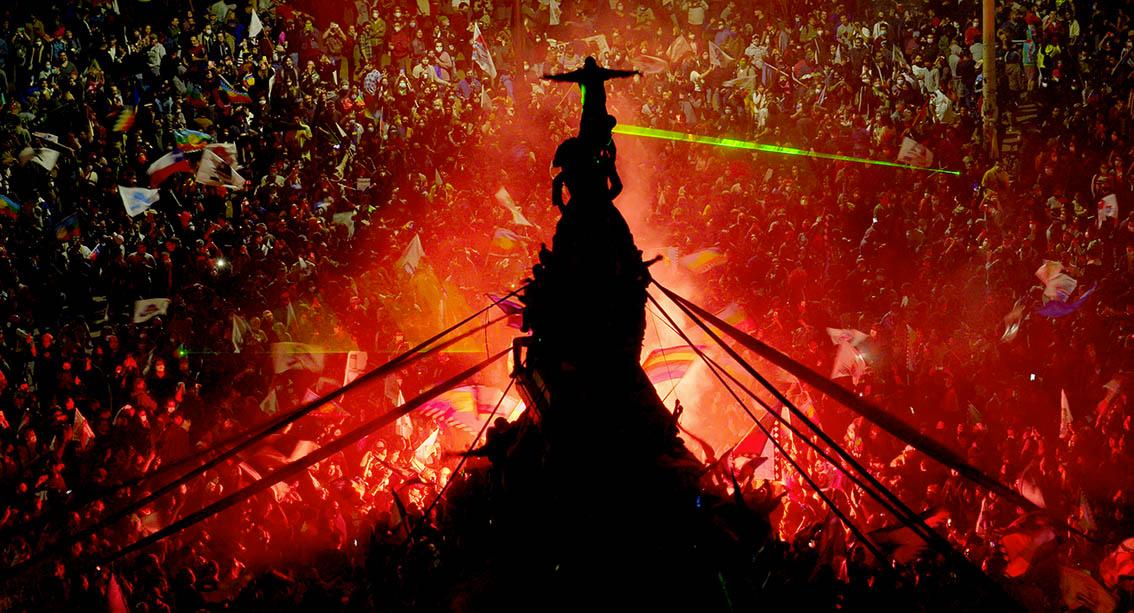Like much of South America, Chile has had a difficult, complicated and rather dark history. It’s also a rich and vibrant country. Evidence of settlements date back over 10,000 years, but despite resisting the Incas the Spanish were just too much for the indigenous peoples. The 19th century saw independence from colonial rule, leading to a period of instability and change until General Augusto Pinochet took charge in the 1970s, becoming the controversial figurehead for almost 30 years.
Modern Chile is relatively stable. However, in October 2019, spurred by a coordinated campaign by high school students against the cost of travel fares, protests broke out on the streets of Santiago. The ‘Estallido Social’ became increasingly violent, spreading rapidly across the nation and became a statement against social inequality. This eventually resulted in the writing of a new constitution. My Imaginary Country assesses where Chilean society is now in light of these demonstrations.
In My Imaginary Country, Patricio Guzmán returns to the familiar territory of his homeland. The director’s entire career has focused on the country of his birth and his relationship with it. Most notably in Nostalgia for the Light and The Battle of Chile. The great documentarian turns his lens on those who were in the thick of the demonstrations. Painting a rich tale of the power of popular protest and people action. Tracking recent events in terms of, and in relation to, its chequered history.
My Imaginary Country opens at the IFC Center in NYC on 23 September and Boston, Chicago, Los Angeles and San Francisco on 30 September.











No Comment